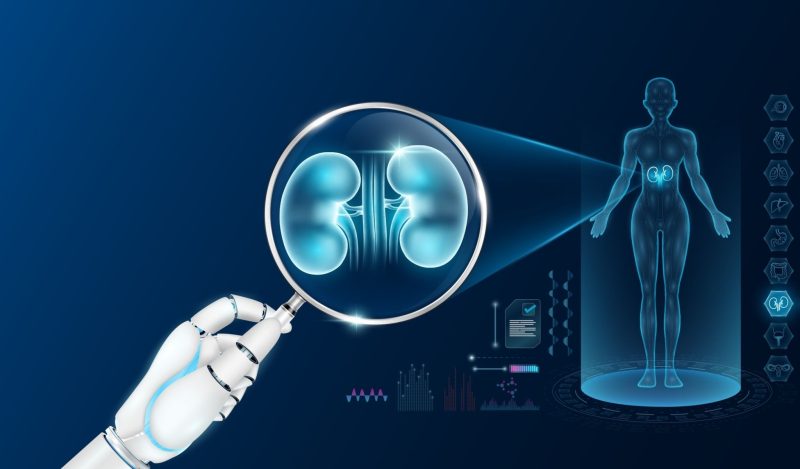Rachel, an immigrant to the US from Britain, began her master’s degree in biology at a public university in one of the Great Plains states with the hope of later completing a PhD. Like many graduate programs in biology, hers entailed the standard mix of coursework, teaching duties, and research, all intended to prepare her for an academic career or perhaps a job in industry or education where she could put the knowledge and skills she would acquire to good use.
Unfortunately for Rachel though, it was the spring of 2020 when she entered her program. Her state locked down just as she prepared to start conducting research.
This was during Spring Break, she wrote in an email interview. “The break was extended throughout the following week, presumably to allow policies to be written and to set up online access to classes. Campus was completely closed for the rest of the semester…”
Hence, research would have to wait and she would need to finish her classes online, even if her instructors were ill-prepared for the switch in format.
“Lecture material was frequently uploaded late, on several occasions not leaving enough time to study it properly before a test,” Rachel wrote. Emails to professors would go ignored. Audio quality for video lectures could be quite poor. Captioning features could be comedically awful. “[T]he word ‘virus’ was frequently transcribed as ‘wireless’, ‘WiFi’, and even ‘walrus’,” Rachel recalled. “I spent more time trying to figure out what was being said than actually learning.”
On one occasion, Rachel remembered, she and a number of other students somehow got trapped in a Zoom virtual waiting room for an entire class period, after which they were blamed by their professor for ditching. In another course, technical complications prevented Rachel from ever watching lectures live.
Summer proved to be more of the same. Classes were still online. Rachel was still not allowed to begin her research. Things changed though in the fall. That semester, Rachel had a lab course for which lectures were online, but the lab portion of the course was in person. Other than the university’s mask requirement, the only catch was that the lab portion was set up in a way to ensure no more than half the enrolled students were ever present in the same room, thus cutting everyone’s time in the instructional lab in half and making it quite difficult to complete work properly.
That semester, Rachel also finally was allowed to commence conducting actual research, although not without obstacles. Some related to funding, a common issue in biological research. Others though were more specific to the Pandemic Era.
“Absence of various professors due to their Covid fears was also an issue,” Rachel wrote, “as this meant I was not always able to get assistance with lab techniques that were new to me. I had to figure out much of it on my own. There was no collaboration…”
According to Rachel’s account, the environment she found herself in also precluded her from developing meaningful relationships with her peers and professors.
“Social aspects honestly feel as though they did not really happen,” she stated. “I rarely saw other graduate students, even though I know there were several in the department.”
Furthermore, her lack of enthusiasm for masks and vaccines strained her relationship with her advisor.
“Masks were required on campus at all times until the end of spring semester 2021, when it became ‘highly recommended’ instead,” Rachel wrote. “I stopped wearing a mask immediately, yet my advisor and the undergraduate students in the lab proceeded to have a long discussion via group text about how unsafe it was to stop wearing masks and how to complain to the university that they felt unsafe now.”
From Rachel’s description, the lab culture around Covid vaccines propagated by her advisor was even worse.
“My advisor in particular was an incredible proponent for the vaccines, even going so far as to recommend I [sign up] for the AstraZeneca clinical trial happening locally, since she was participating,” Rachel wrote. “I was also informed that she would get $50 if I signed up and mentioned her name, which made it feel as though I was causing her financial issues by refusing.”
Once Covid vaccines were available to at least a portion of the public, Rachel added, “Every time I saw her, she would ask if I had booked an appointment, recommend that I get around the early restrictions on availability by telling the clinic I was a teaching assistant (education employees were among the first to be offered shots here)…”
“[O]n one occasion [she] even tried to book an appointment for me…” continued Rachel.
“This led to a very tense, uncomfortable work environment,” she noted.
How much these or other differences Rachel had with her advisor impacted her academic career was something about which Rachel was still uncertain in the fall of 2022. A year earlier, she was preparing to graduate by finishing up her thesis and organizing application materials for a PhD program. However, Rachel recalled, “[M]y advisor waited until after the application deadline to provide a letter of recommendation, a deadline which had been clearly communicated when I requested the reference. I don’t know whether this was her standard operating procedure, whether it was due to our clear differences in approaching Covid, or other issues she may have had with me.”
Listing some of those other possible issues, Rachel noted, “I’m an immigrant (but not an ethnic minority), the spouse of a veteran, and although I make it a rule never to discuss my political views, I was the only student who did not enthusiastically agree with the statement ‘Anyone who votes for Trump can get the hell out of my lab’ shortly before the presidential election.”
“I later considered applying for a different PhD program, but that university required either vaccination or ‘random weekly testing,’ to which I do not consent, so I abandoned that application,” continued Rachel, although this may not have mattered.
As of fall 2022, Rachel stated, “[T]he thesis I submitted in November 2021 has not been reviewed…I have not graduated from the program.”
Following these experiences at her university and in her lab, Rachel wrote, “[I] have no further plans to continue in academia. I do not believe it to be a good fit for me at this time.” Instead, she stated, “I am pursuing unrelated business opportunities.”
Experiences such as Rachel’s have proven common during the Pandemic Era.
In a phone interview earlier in 2022, Brandon Paradoski, a master’s student in immunology at the University of Manitoba and vice president of Students Against Mandates, stated in his department, “There really wasn’t much talk or discussion about [Covid] at all…It was just sort of like this is how it is. Follow the rules. Follow the orders type of thing.”
“There wasn’t really an open talk at all, discussing like any opposing views,” he added.
Students who didn’t follow the rule and didn’t obey were sometimes disenrolled from courses. Others faced serious conflicts with their advisors.
“I know some people who wanted to do research,” Paradoski reported, “but like their professor’s views [about Covid] clashed with theirs, and so the professor was like, ‘Okay I kind of don’t want you in my lab anymore.’”
A personal friend of mine had a similar experience while completing her master’s degree in biology during the Pandemic Era. Regularly she’d call me, distraught over the maltreatment she received from both graduate students and professors alike due to her unvaccinated status.
Although her university had a vaccine mandate, she had a long-documented autoimmune condition for which she received a medical exemption. However, she was still subject to condescending lectures from biology professors regarding how she was being unscientific in her refusal to receive her shot.
One particular professor even denied her access to equipment she needed to use in his lab, claiming his lab had a vaccine mandate that didn’t allow for exemptions. Her peers provided little reprieve. Vaccinated graduate students who would disregard social distancing and masking policies when interacting with one another, would strictly enforce them when interacting with her.
Countless people from all walks of life have found themselves lost in a shared Kafkaesque dream since the dawn of the Pandemic Era nearly three years ago, yet, what makes accounts such as those contained here particularly jarring is that these students were not simply contending with a class of administrative automotons, as many have, but with well-trained, well-educated biologists – the kind of people one might have initially expected to put up the greatest resistance to illogical and scientifically unsound Covid policies.
Instead though, the group that should have been among those to put up the greatest resistance to Covid policy were among those most willing to embrace it. They casually dismissed and sometimes actively exacerbated the harms such policies wrought. And perhaps most disturbingly, they not only damaged the careers of aspiring young biologists, but worked to assure biology becomes a field characterized by those willing to acquiesce to orthodoxy.
Published under a Creative Commons Attribution 4.0 International License
For reprints, please set the canonical link back to the original Brownstone Institute Article and Author.









